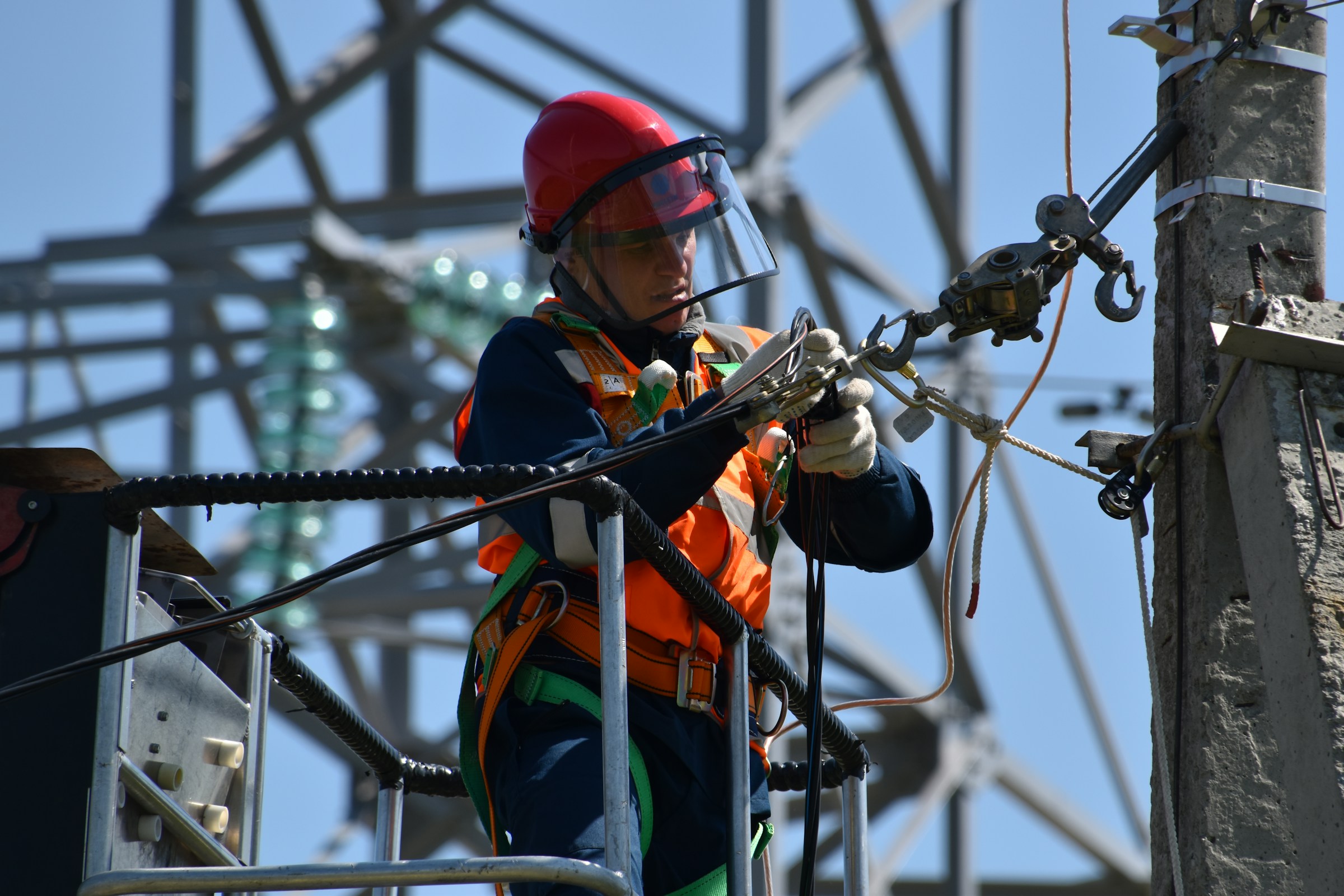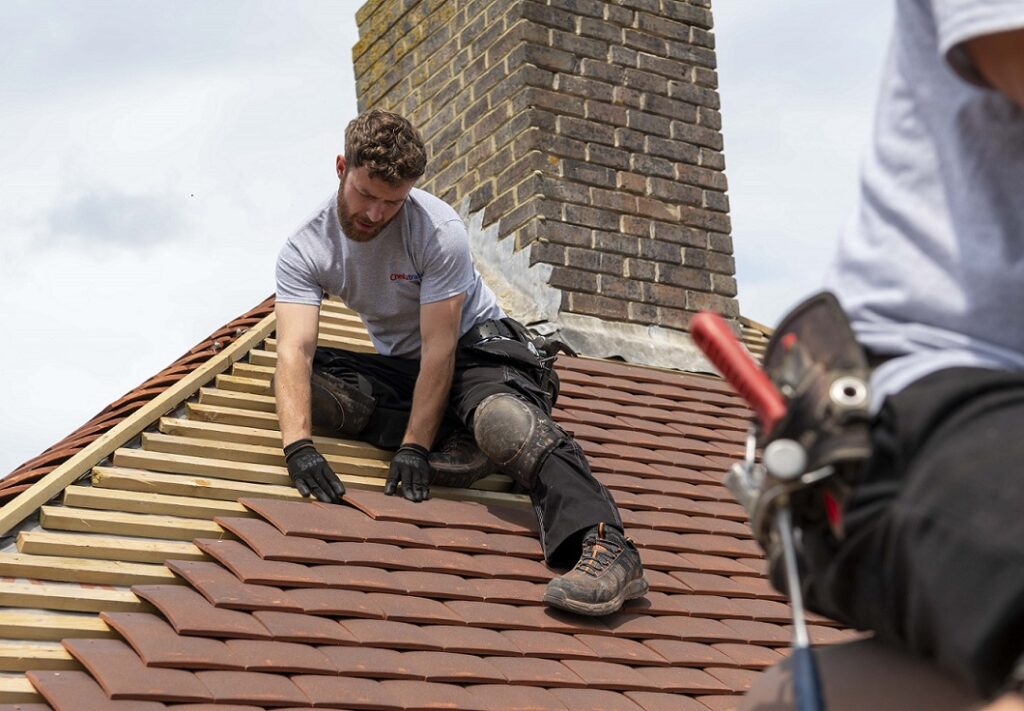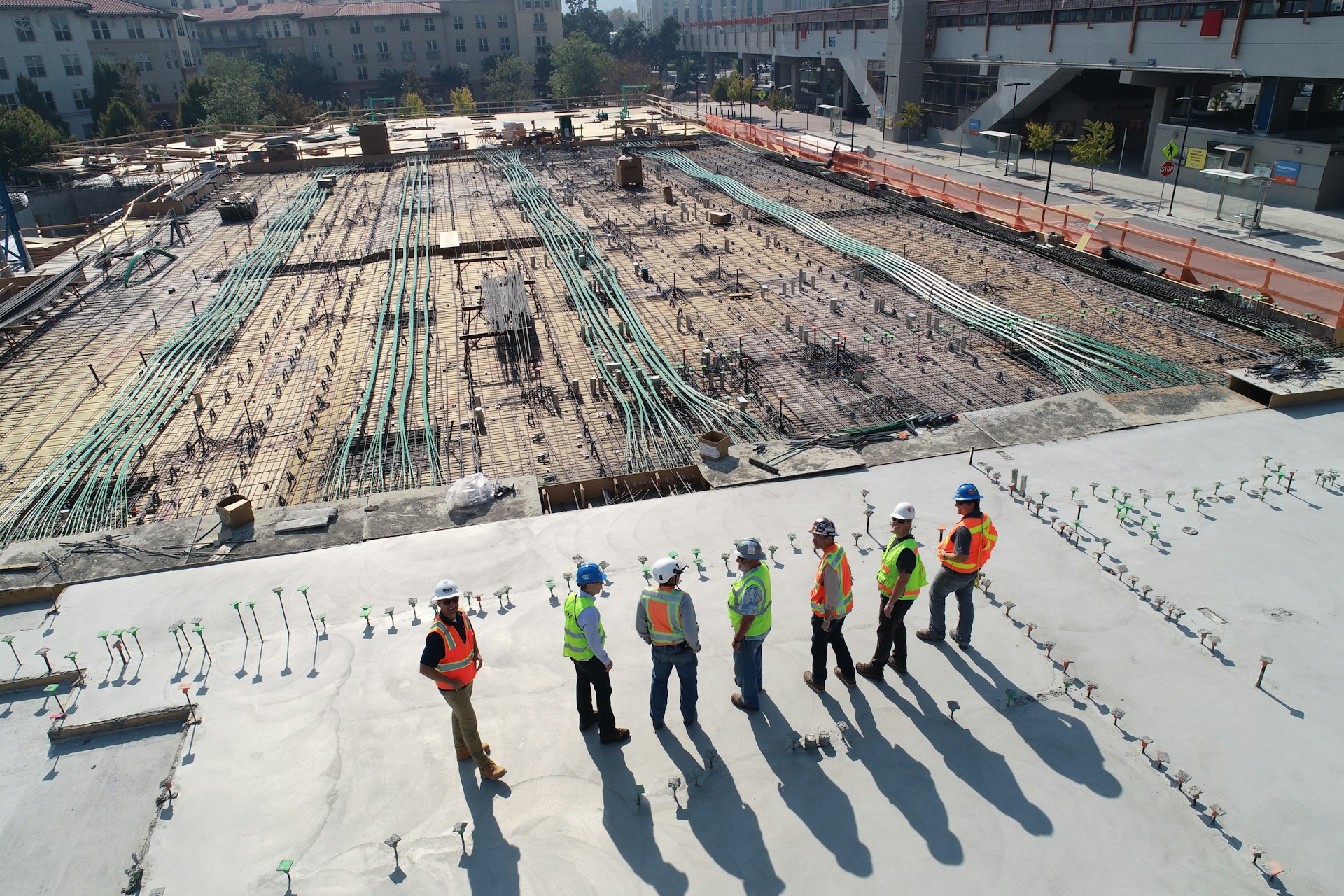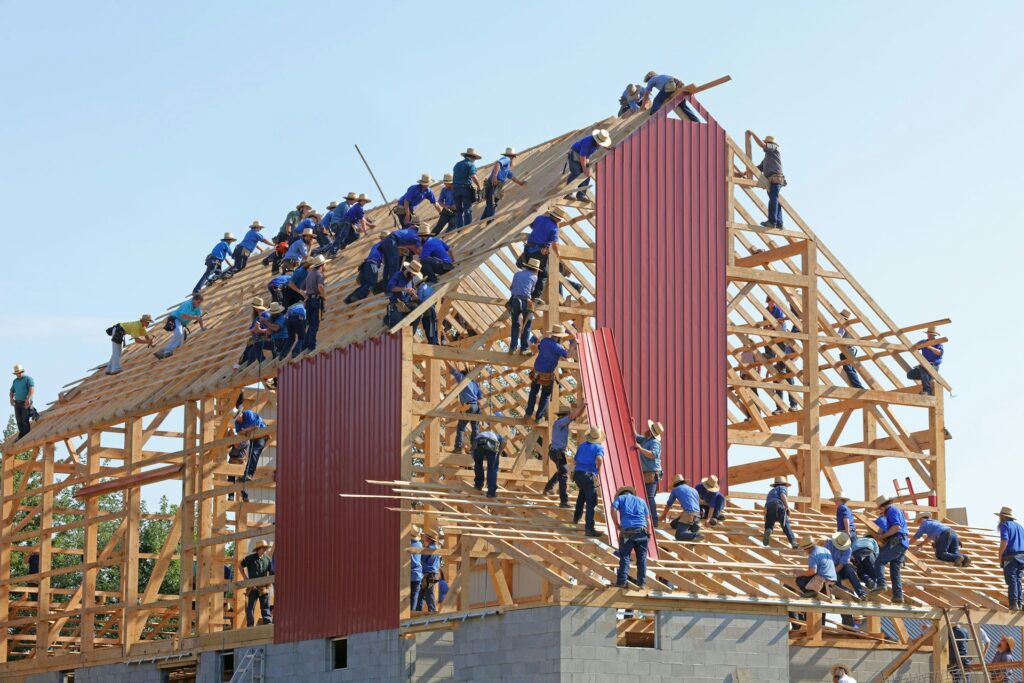Choose from the nation's best insurance providers

Top construction contractors we insure















Recommended insurance policies for construction businesses and contractors
Insurance can help your business recover from lawsuits, injuries, and theft. Meet your state’s requirements and find peace of mind with the right policies for construction companies and contractors.
How much does insurance cost for construction businesses?
General Liability Insurance
Covers bodily injuries, customer property damage, and advertising injuries. Often required for commercial leases.
Best for:
Slip-and-fall accidents
Customer property damage
Libel lawsuits
Professional Liability Insurance
Also called E&O insurance, this covers legal costs for professional errors or missed deadlines.
Best for:
Negligence lawsuits
Project disputes
Work mistakes
Workers' Compensation Insurance
Covers medical expenses for employee injuries and is required in most states.
Best for:
Employee medical costs
Disability benefits
Injury-related lawsuits
Business Owner’s Policy (BOP)
Combines general liability and commercial property insurance for small businesses in one affordable package.
Best for:
Customer injuries
Damaged property
Business interruptions
Cyber Insurance
Helps businesses recover from cyberattacks and data breaches by covering recovery costs and customer notifications.
Best for:
Data breach lawsuits
Customer notifications
Fraud monitoring
Commercial Auto Insurance
Covers vehicle-related accidents and damages. Required for business-owned vehicles in most states.
Best for:
Auto accident lawsuits
Vehicle damage or theft
Vandalism

Several factors will have an impact on the pricing of construction insurance policies, including:
- Services offered, such as carpentry, excavation work, or painting
- Business equipment and property, such as backhoes, forklifts, and bulldozers
- Whether you do commercial or residential work
- Business revenue
- Location
- Number of employees
- Types of insurance coverage purchased
How do I get construction business insurance?
It’s easy to find insurance for construction businesses. Whether you’re a general contractor, electrician, or roofer, you’ll need to have some basic information about your business available.
Our application will ask you for your annual revenue and payroll, among other details. You can buy a policy online and get a certificate of insurance with Swift Insurance in three easy steps:
- Complete a free online application
- Compare free quotes and choose a policy
- Pay for your policy and download a certificate for proof of insurance
Swift’s licensed insurance agents work with top-rated U.S. providers to find the right insurance products for your construction business, whether you’re a handyperson who works independently or a commercial builder with multiple employees.
Common questions about construction business insurance
What other types of coverage do construction businesses and contractors need?
Depending on the work you do, you may need additional types of construction insurance. Other policies commonly purchased by construction businesses and contractors include:
- Builder’s risk insurance: This policy provides coverage for a structure under construction, along with materials at a construction site. It’s sometimes called course of construction insurance.
- Contractors pollution liability insurance (CPL): CPL covers legal costs related to harm caused by pollution at a construction site. You may also see it referred to as environmental insurance.
- Inland marine insurance: This policy protects construction tools and equipment in transit, stored off-site, or at a job site.
Common types of inland marine insurance include contractor’s tools and equipment insurance, which provides protection for newer items valued at less than $10,000, and installation floater insurance, which covers materials being installed or built by a contractor during a construction project. - Commercial umbrella insurance: Umbrella insurance boosts the coverage on your general liability, commercial auto, and employer’s liability insurance once the policy limit is reached.
- Mobile equipment endorsement: This addition to your commercial auto policy covers forklifts, tractors, and other machinery driven on public roads.
Do I need a license, permit, or bond for my contracting business?
Construction licenses and permits are often needed in order to comply with state and local laws. This depends on the type of work you do and your location. For example, your state might require a license to do plumbing or electrical work, or you may need a town permit for pesticide application or tree removal.
As part of the licensing and permit process, you may need to pass an exam, get a contractor surety bond, or buy insurance. For example, general contractors in California need to submit proof of insurance and a surety bond in order to get licensed.
Who is responsible for insuring a building site?
Depending on circumstances, the contractor, building owner, or property developer may be responsible for insuring a construction project. Regardless of who insures the project, it’s important to make sure that you’re protected in the event of a lawsuit or other incident.
If you’re not the one buying insurance, make sure you’re listed as an additional insured on the policy. Anyone involved in a project could end up facing legal bills, even a subcontractor, which is why it’s important to secure protection.
Does my construction business need commercial auto insurance?
Construction businesses and contractors that purchase commercial auto insurance often:
- Have a vehicle titled to their business
- Drive to and from worksites
- Carry tools, equipment, or products used for work
- Transport clients or employees
- Rely on delivery drivers or couriers
What are the benefits of maintaining construction business insurance?
Though it’s possible to get short-term insurance for a project, continuous coverage benefits your business in the long run.
Most important, it means you’re always protected against fires, theft, injuries, and lawsuits that could devastate your business. Additionally, you might need contractor insurance to bid on a project, work with a certain client, or get a license. Being insured means you’re ready to take on any project, and it puts you a step ahead of your competitors in the eyes of clients and customers.
Finally, insurance companies often charge more when a company starts and stops insurance. Maintaining continuous coverage keeps your contractor insurance premiums low and is a key part of risk management.
